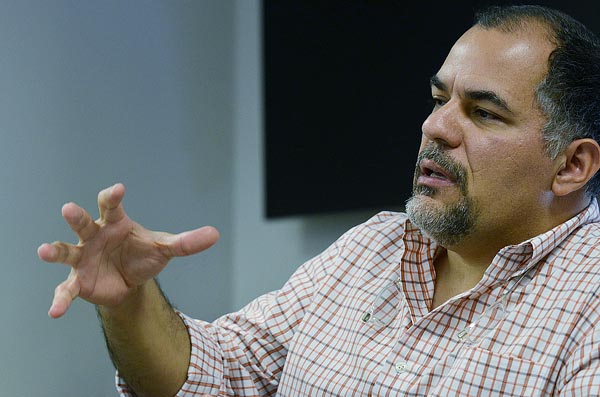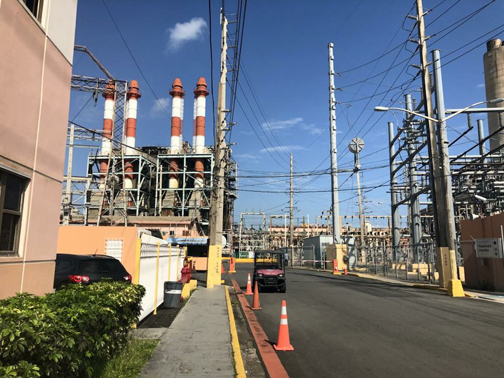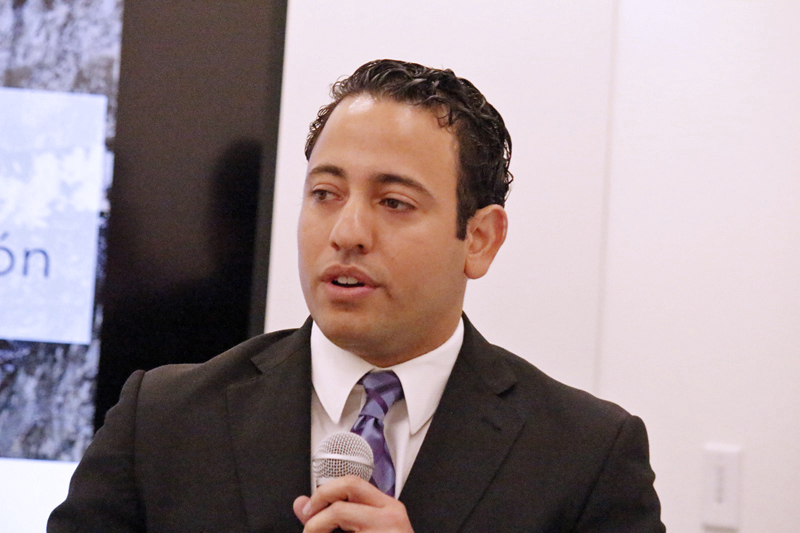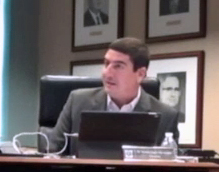CNE: External regulatory board needed to run PREPA

The Puerto Rico Electric Power Authority needs to undergo profound changes to improve its fiscal situation and consumer services, something that could happen under the supervision of an external, independent regulatory board, members of the Center for a New Economy think tank said Tuesday.
While an outside board is not the magic solution to the utility’s woes, it would be a first step toward correcting problems in the long run and make it operate more like “the public corporation that it is supposed to be,” said Mike Soto-Class, president of the CNE.
During a meeting with members of the local media, Soto and Sergio Marxuach, the CNE’s director of public policy, said having an outside entity oversee Prepa’s operation would help eradicate politics from day-to-day decision-making and establish transparency.
“The way public corporations are being governed right now isn’t working. Nobody really represents the people, who are the true stakeholders, and nobody is watching over the faithful fulfillment of public policy objectives. The board’s composition needs to be changed so that representatives of different sectors balance each other out,” said Marxuach.
One of the fundamental issues plaguing Prepa is the high level of politics strangling it at nearly every level, they said. The agency’s organizational chart consists of a governing board that oversees the entire operation, including its top management and Puerto Rico’s electricity market. Management is responsible for overseeing the flow of power generation, transmission and distribution.
“Both the governing board and senior management are appointed by the governor based on political criteria, so there’s a high level of bureaucratization, politicization and opacity,” Marxuach said.
An effective governing board would be split equally between corporation employees, as well as representatives of the state and the private sector, the CNE proposed.
Furthermore, by taking the responsiblity of regulating the market away from Prepa’s governing board and putting it in the hands of an independent board, the agency would no longer have arbitrary power to regulate Puerto Rico’s electricity market in terms of pricing and competitive matters.
“This is the first logical step to take to bring down energy costs in three to five years considering that Prepa’s entire legal and regulatory structure would have to be changed,” Marxuach said. “Establishing an independent regulatory agency would open the process to public scrutiny and limit the influence of these [interest] groups that have overtaken the corporation. We’ve been promoting the creation of such an agency for many years.”
Meanwhile, Soto said “ignorance, inertia and ideology” are to blame for the inaction of nearly every administration with regards to reforming Prepa.
As it is, immediate steps are required to address Prepa’s need for $2 billion to comply with a mandate for capital improvements from the Environmental Protection Agency that must be completed by 2016. Because the agency will not be able to turn to the Government Development Bank for credit or draw from the General Fund, a rate increase is inevitable, Marxuach said.
Following OECD principles
In its proposal, the CNE suggested following principles laid down by the Organization for Economic Co-operation and Development (OECD) that have helped many countries be more effective in running their utilities and public agencies.
Topping the list is “ensuring an effective legal and regulatory framework for state-owned enterprises” that in this case is not a reality for Puerto Rico or Prepa, which still follows a structure implemented 40 years ago.
The OECD also suggests state governments should act as an “informed and active owner” while setting a clear and consistent ownership policy, something Puerto Rico needs to be able to achieve economic development goals through these corporations.
“Puerto Rico doesn’t do this at all. Instead we focus on the grave fiscal problems of the public corporations, which is important. There is no vision anywhere in government about the goals we want to accomplish through these entities,” Marxuach said.
Two other OECD points — “equitable treatment of shareholders” and “relations with stakeholders” — are also being ignored, as Prepa’s ultimate goal is to generate benefits for bondholders, not consumers who are the true owners of the public corporation, he said.
“The point is to recognize that each of these groups are equally important,” he said.
Meanwhile, Marxuach said Prepa is also falling flat on complying with matters related to transparency and disclosure, as defined by the OECD’s principles of corporate governance.
“Disclosure is practically non-existent at Prepa and it shouldn’t be that way. If this is a public corporation, it should be transparent especially regarding groups that receive subsidies and who is paying for those subsidies,” he said. “We have no idea about how much those subsidies cost regular consumers, who ultimately end up paying for them.”
As a result of the CNE’s proposed overhaul, Prepa’s prices would also need to be addressed, so that consumers are charged for what they consume without hidden costs. The agency would need to significantly improve efficiency to scale back losses, including those brought on by energy theft, Marxuach said.
“Puerto Rico could have the best energy policy in the world, but it won’t be able to make it a reality while Prepa remains in the condition it’s in,” said Marxuach.













PREPA is government-owned and has its board members: the Secretary of Transporation and Public Works, six government-appointed board members and 2 popularly-elected members representing consumers.
An oversight board would seem to add another layer of bureaucracy.
I have aways understood that oversight boards – sometimes known as public service commissions – are used for private for-profit utility companys, not government-owned utilities.